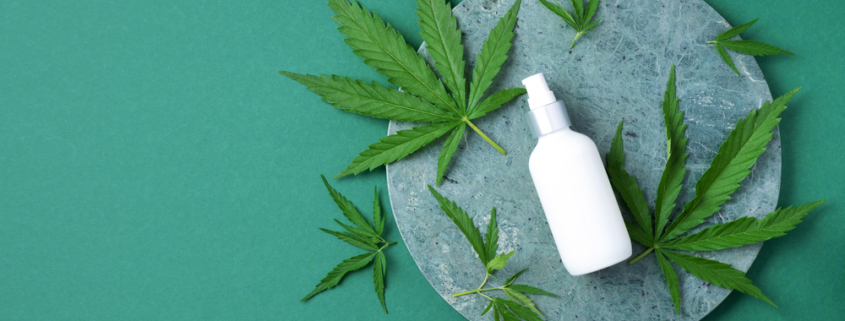If you have ever been to the supermarket and purchased “store brand” groceries, you are familiar with the white label model. With white label products, a single manufacturer sells the same goods to several different businesses. In turn, these businesses then rebrand the goods as their own before going to market with them.
Private labeling is another practice where businesses outsource manufacturing to a third party. However, in a private label arrangement, manufacturers develop a specific product strictly for a single party — as opposed to one product for many companies.
As the national CBD industry continues to normalize, it is taking notes from more mainstream industries regarding white labeling and private labeling. Importantly, both white labeling and private labeling break up the hemp CBD supply chain, allowing different businesses to handle only specific links along the way.
What are CBD White Label Products?
From seed to sale, the hemp CBD supply chain contains many complex steps. Whether it be growing hundreds of acres of hemp plants, or doing supercritical CO2 extractions, implementing each step in the supply chain can be extremely expensive. As such, while vertically integrated hemp CBD companies have the most potential profit, they also take the greatest financial risks.
According to Investopedia, “White labeling occurs when the manufacturer of an item uses the branding requested by the purchaser, or marketer, instead of its own. The end product appears as though it has been produced by the purchaser.” In the hemp space, white label manufacturers play an important role for companies that cannot afford every step in building a new CBD brand — such as growing their own hemp or doing their own extractions.
The white label model breaks up many of the steps in CBD product manufacturing and disseminates them among several businesses. To illustrate, a common model for white labeling in CBD is for a single business to cultivate hemp, extract CBD, and finally formulate gummies. Next, a different business entity purchases the premade CBD gummies and sells them as their own brand.
With the white label model, purchasers can get CBD products to market without having to invest money in a vast majority of the steps in the supply chain.
Private Label CBD Products
As seen with white labeling, private label CBD products are also manufactured by another business. However, private label CBD products are based on a singular formulation that is wholly unique to a specific brand. As a result, private label CBD companies have a trademark not only on their branding, but also on specific product formulations.
Today, private labeling is a common practice in the essential oils industry. With the private label model, wellness brands work with manufacturers to develop specific essential oil blends. Once the two parties have created a sellable product, the wellness brand gets a trademark on the essential oil and goes to market with it. The relationship continues as the manufacturer continues to produce the essential oil.
The private label model allows new companies to enter the CBD space with a totally unique product – while also circumventing the need to grow and process their own CBD. Because these arrangements are often done under a contract between a manufacturer and buyer, the buyer also has more input into the development of a satisfactory CBD formulation.
With private label CBD products, purchasers can get unique CBD formulations to market without having to invest large sums of money in cultivation, extraction, etc.
CBD White Label vs. CBD Private Label
The pros and cons of white label and private label CBD products can be viewed from the perspective of either a business or a consumer. When it comes to end-users, product quality is almost always the most important factor for CBD products. Yet, businesses must consider both profitability and logistics in assessing CBD white label and private label business models.
The differentiating factor between white label and private label CBD products is product formulation. According to the white label model, several different CBD companies could sell products with identical formulas at the same time. Conversely, in the private label model, the CBD product formulation is unique to a specific brand.
CBD White Label Pros
White label hemp products have several advantages for CBD businesses. These include:
- Easy market entry
- Low overhead
- Less employees
- Manufacturing expertise
- Compliance guidance
In the end, all of the factors that help reduce production costs for CBD companies are reflected in the final price point at which CBD white label products are sold. As such, this practice also helps end consumers get white label CBD products at a more affordable price point.
CBD Private Label Pros
Private labeling offers many of the perks of outsourcing manufacturing seen with white labeling, while still allowing companies to provide unique CBD products for their customers.
Private labeling has several advantages for CBD businesses. These include:
- Product and brand are identical
- Control over manufacturing
- Flexibility with product formulation
- Cater to customers
- Brand loyalty
Private labeling is much more likely to drive customer loyalty than white labeling. Simply because, consumers can easily purchase white label products from other companies if they see fit.
Benefits of Working with White Label CBD Companies
Hemp farmers can benefit greatly by partnering with the right CBD white label services.
As mentioned throughout this article, white labeling allows businesses to split up the hemp CBD supply chain into digestible and affordable parts. While this division of overhead cost and labor is greatly beneficial for CBD brands, it is also extremely helpful for hemp farmers. Just as CBD brands can circumvent cultivation and extraction with white label partnerships, hemp farmers can avoid many of the business headaches that come with the CBD industry.
Commercial hemp farming is a massive undertaking in itself. To consistently grow high-quality CBD crops, farmers must account for irrigation, fertigation, IPM, labor, genetics, weather, compliance, and much, much more. Therefore, it is not surprising that many hemp farmers today don’t want to worry about business-centric tasks like branding, marketing, and retail sales.
Unfortunately, many new hemp farms have gone out of business simply because people have attempted to “wear too many hats” on the job. Conversely, white labeling allows hemp farmers to focus on what they do best – grow hemp.
The final thing to consider is that established white label manufacturers can make great partners for hemp farmers. Because white label manufacturers make CBD products for an array of customers, they have more market versatility than most hemp companies.
Contact Us
High Grade Hemp Seed has helped countless farmers understand their options for doing business in the CBD white label market. We are happy to share our expertise with you.
Please contact us to schedule a call.



